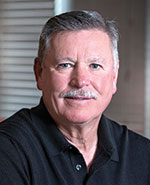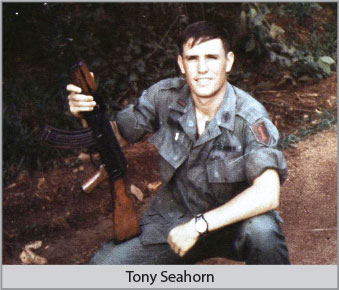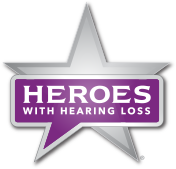Fighting in Silence
CPT Tony Seahorn Battles the Lasting Impacts of War
The UH-1 “Iroquois” helicopter, dubbed the “Huey” by the soldiers who served in the shadow of its silhouette, was the workhorse of the Vietnam war. The versatile aircraft and the distinctive “wop wop wop” of its single prop were icons of the time. More than 7,000 Hueys served in Vietnam, and nearly half were lost in combat. With barely any protection from ground re beyond a thin layer of olive green sheetmetal, it took brave men to y these “slicks” in and out of a hot LZ – brave men like CPT Tony Seahorn.

In the summer of 1968, Tony was a proud member of the Black Lions of the Army’s 1st Infantry Division. He was flying missions around Nui Ba Den mountain in the “Iron Triangle,” when he received word that a recon patrol near Quan Loi had walked into an enemy ambush and was in dire need of air support. After setting down to dust-off three of the most seriously wounded, Tony’s chopper was beginning to liftoff when it was struck by a rocket-propelled grenade from the tree line.
“I was thrown from the helicopter, basically somersaulting across the ground,” recalls Tony. “And then I looked up and the helicopter exploded.” Miraculously, the explosion threw Tony far enough from the blast to spare his life. Beyond the obvious physical wounds he sustained in Vietnam, it wasn’t until years later that Tony realized the crash and explosion were likely the initial cause of what would become his most lasting injury of the war.
“I never viewed my hearing loss as serious or critical,” says Tony. “Mine is all intertwined with other injuries from my combat experience.”
Often overshadowed by the more visible and publicized wounds of war, hearing loss remains the number one service-connected disability for military members and veterans of ever y generation.
For combat veterans like Tony, hearing loss is often interconnected both physically and emotionally with other conditions such as Post Traumatic Stress and Traumatic Brain Injury. Finding proven, real-world hearing loss solutions in conjunction with the other challenges faced by veterans is the foundation of the Heroes With Hearing Loss® program. Hamilton CapTel®, a nationwide service provider of real-time captions for telephone calls, conceived Heroes With Hearing Loss in response to the epidemic of hearing loss injuries among veterans.
“A lot of the hearing loss now is from traumatic brain injuries, from being so close to blasts,” says Tony’s wife Janet, who also happens to be a Ph.D neuroscience researcher and professor. “So I think there’s more going on in their brains. The hearing loss is just one part of that.”
According to Veterans Administration (VA) audiologist and leading tinnitus researcher Dr. Steve Benton, the debilitating combination of hearing loss and tinnitus can leave veterans feeling vulnerable, alone and disconnected. “Many of our patients come to us truly feeling they are the only ones who experience these problems. For many veterans, it’s really very important to know there are groups like Heroes With Hearing Loss available just for them.”

“Our goal is to start a national dialog with veterans about hearing loss,” says Shari Penner, the program’s national manager. “We want to get people talking and raise awareness about what makes hearing loss among veterans such a unique challenge.”
The Heroes With Hearing Loss program revolves around the premise that veterans share an unshakable bond regardless of age or era of service. Connecting these veterans from ever y generation is critical to ensuring that our nation’s heroes are living well with hearing loss. Sharing their hearing loss challenges and solutions to overcome them is making a real difference for veterans and their families.
Each time Tony recalls the events of his time in Vietnam, the inner turmoil is evident in the memories that reflect in his eyes. “After experiencing the death and destruction of combat,” he says, “you just can’t go back and be the person you were before.”
Tony’s journey is just one of many. Please visit our website and join the hearing loss conversation with Tony and other veterans from around the country.
 Heroes With Hearing Loss
Heroes With Hearing Loss